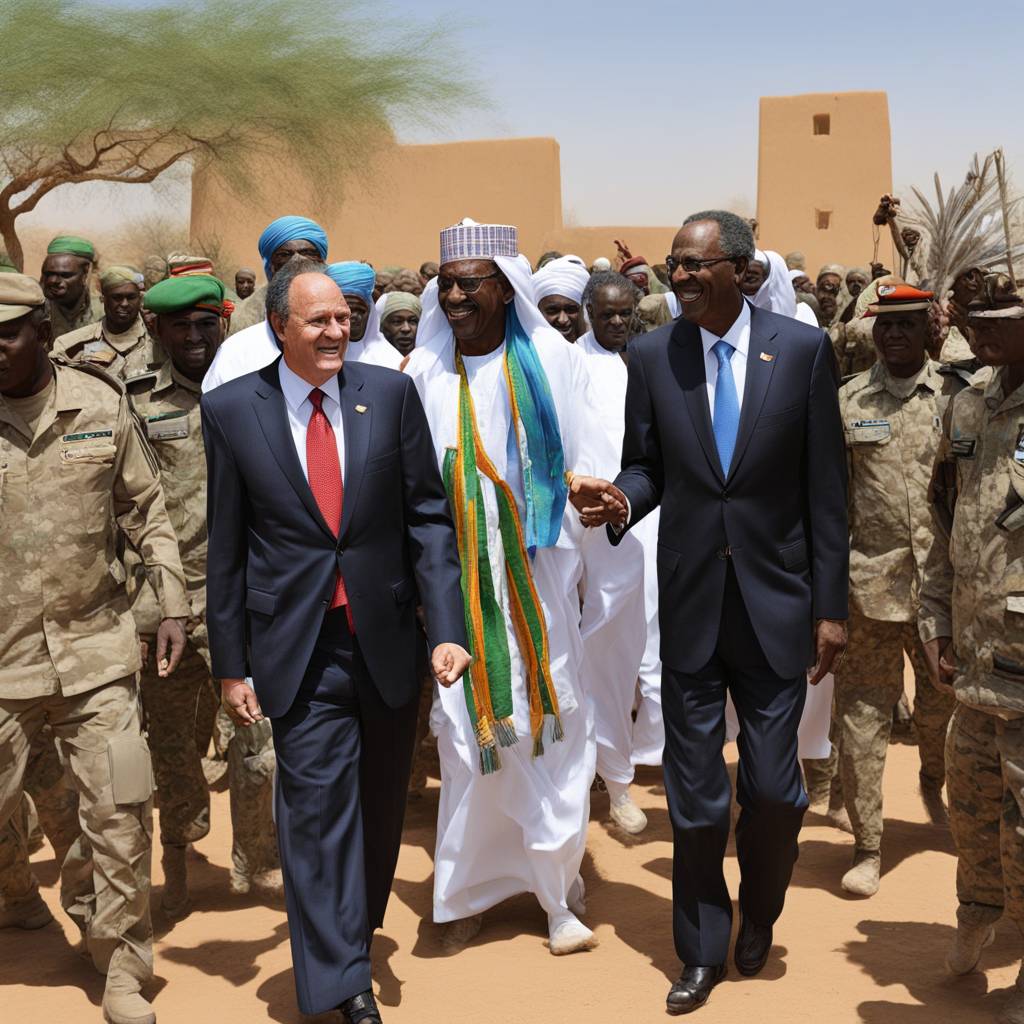US Special Envoy for Sudan, Tom Perriello, announced that formal talks aimed at ending the war in Sudan may resume in mid-April, nearly a year after the conflict began. Despite past unsuccessful attempts to broker a lasting peace agreement, Perriello remains optimistic about the current situation, citing changes on the ground that make this moment more promising for resolution. He acknowledged that the odds of success are not over 50%, but believes there is a real path forward with a chance, and the US is committed to pursuing it with all efforts.
The formal talks are not expected to start until after Ramadan, with a potential date set for April 18. Perriello expressed hope that this date will be confirmed soon so that participants can transition from a donor conference in Paris on April 15 to the talks, which will be held in Jeddah, Saudi Arabia. In the meantime, efforts are being made to explore all possible angles to ensure that the talks are set up for success. The April 15 anniversary of the conflict between the Sudanese Armed Forces and the Rapid Support Forces, which has resulted in thousands of casualties, displacement of millions, and the world’s largest hunger crisis, underscores the urgency of finding a resolution.
The April talks will be hosted by the US and Saudi Arabia, with anticipated involvement from the United Arab Emirates, Egypt, the Intergovernmental Authority on Development, and the African Union. Perriello highlighted the importance of having key African and regional counterparts, as well as Egypt and the Emiratis, engage in the talks. Efforts are underway to determine the optimal combination of actors and incentives that can lead to a resolution, whether by getting the conflicting generals to come to an agreement or by leveraging external pressure to compel their decision. The heightened diplomatic engagement, absence of a clear victor on either side, and the imminent famine contribute to the potential for successful negotiations.
Reported instances of forced recruitment by the Rapid Support Forces, including the weaponization of food to coerce enlistment, have raised concerns about the deteriorating situation in Sudan. Perriello acknowledged the signs of weakness and strain within the RSF, as well as the broader negative impacts that could result from such actions. The US is exploring options to expand sanctions on individuals involved in committing atrocities in Sudan to address these concerns. Both the RSF and the Sudanese Armed Forces represent significant barriers to humanitarian aid delivery in Sudan, with raids on stores and destruction of farming assets exacerbating the fragility within the country. As the lean season approaches along with the rainy season, the humanitarian crisis is expected to worsen, necessitating urgent action to support relief efforts.
In conclusion, Perriello emphasized the urgency of finding a resolution to the conflict in Sudan, given the devastating impact on the population, including widespread displacement, hunger crisis, and barriers to humanitarian aid. The upcoming talks present an opportunity to address the root causes of the conflict and work towards a sustainable peace agreement. By engaging key regional actors and leveraging diplomatic efforts, there is hope for progress despite the challenges ahead. The US remains committed to supporting these efforts and exploring all possible avenues to bring the war to an end and alleviate the suffering of the Sudanese people.


